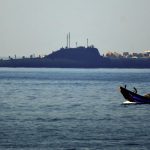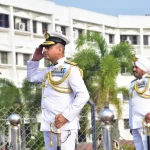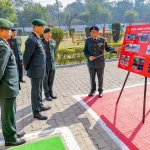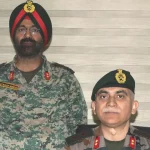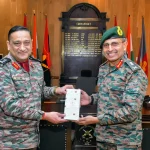In a significant diplomatic achievement for India, eight former Indian Navy personnel who faced espionage charges in Qatar were released after spending nearly two years in detention. Their ordeal began in August 2022 when they were arrested while working for a private defense consulting firm. The exact nature of the charges remained ambiguous throughout the case, leading to heightened tensions and substantial diplomatic efforts from the Indian government.
The timeline of events detailing their arrest and subsequent legal proceedings is telling. On August 30, 2022, the eight personnel—Captains Navtej Singh Gill, Saurabh Vasisht, Birendra Kumar Verma, Purnendu Tiwari, and Sugunakar Pakala; Commanders Sanjeev Gupta, Amit Nagpal, and Sailor Ragesh—were taken into custody alongside two others. Shortly after their arrest, they were subjected to solitary confinement, a distressing situation that drew anxiety among their families and the Indian public.
Consular access was first granted on October 3, 2022, after which the Indian Embassy officials met the detained individuals. However, the legal struggles continued; by March 2023, several bail pleas were denied and formal charges were finally filed against the men on March 25. The ensuing trial, which began shortly thereafter, remained closely monitored by the Indian government.
In May 2023, the defense company, Dahra Global, where the men were employed, ceased operations in Doha. Despite this setback, diplomatic interventions persisted. By October 26, 2023, the situation escalated dramatically when a Qatari court sentenced the veterans to death. This decision prompted a swift and robust response from India’s government.
External Affairs Minister S. Jaishankar took personal interest in the case, meeting with the families of the detainees to reassure them of the government’s commitment to their release. Following diplomatic discussions at the highest levels, including a pivotal conversation between Prime Minister Narendra Modi and Qatar’s Emir, Sheikh Tamim bin Hamad Al-Thani, significant progress was made. On December 28, the Qatari Court of Appeal commuted the death sentences to prison terms, a crucial turning point facilitated by the extensive legal and diplomatic efforts from India.
Ultimately, on February 12, 2024, the eight men were freed, with seven of them returning to India shortly thereafter. Their release was celebrated as a remarkable diplomatic victory, underscoring the effectiveness of persistent diplomatic engagement and legal advocacy.
Upon their homecoming, the former naval personnel expressed profound gratitude to the Indian government and particularly to Prime Minister Modi, highlighting his critical involvement in their eventual release. They acknowledged the unwavering support from the government throughout their extended ordeal and emphasized the impact of diplomacy in securing their freedom.
The case serves as a poignant reminder of the complexities inherent in international legal processes and the significant role that diplomatic relations play in resolving such sensitive issues. The Indian government’s strategy and proactive engagement ultimately led to a resolution that was both favorable and timely, allowing the veterans to return to their families after a harrowing experience.









